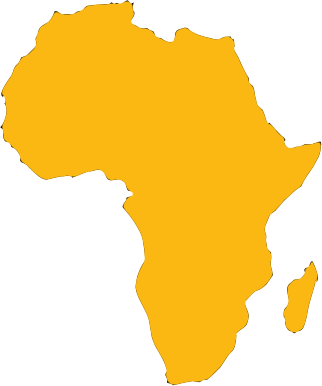DA Approaches ConCourt To Oppose IEC Application To Postpone Elections.
By Phumzile Mavimbela
The DA applied to be joined to the Independent Electoral Commission’s (IEC) application to the Constitutional Court, in which it seeks a postponement of the October 2021 election to early 2022. The deadline for our submission is today, and we have resolved to make it public because the matter is of vital national importance.
The DA, as a political party contesting the election, is an interested and affected party and is therefore entitled to join the IEC’s application to the Constitutional Court. We do so in order to oppose the IEC’s request for a postponement of the election. In our submission, we show that it is entirely possible, based on the scientific evidence relating to the Covid-19 pandemic, as well as the logistical requirements preceding an election, for Election 2021 to be held on the scheduled date of October 27. In addition, we show that there are viable alternatives for the IEC (short of asking the court to amend the Constitution) to address the identified risks, and fix the identified shortcomings in their current preparations for an October election within the remaining time frames.
This applies particularly to voter registration, which is an indispensable element of holding a free and fair election in terms of the Constitution. At the outset, it is important to note that postponing an election is not like postponing any other event, that can be called off for reasons of convenience or need.
Unlike any other event, the timing of elections is set down in the founding provisions of the Constitution, which can only be changed by a constitutional amendment requiring a 75% super-majority in Parliament. The drafters of the Constitution purposefully made it extremely difficult to change the regularity of elections, because of the grave risk of a ruling party being able to interfere with the scheduling of elections.
There is only one way that the Constitution can be amended and that is through achieving the requisite majority in Parliament. No court, not even the Constitutional Court has the power to amend, or even temporarily suspend, the Constitution, because of the Supremacy of the Constitution. This means that the method set down in the Constitution is the only method that can be used to do so.
It is our carefully considered opinion that the ANC, knowing it could not get a 75% majority in Parliament, chose a different route. Despite the fact that the IEC could have met the benchmark for a free, fair and safe election within the stipulated time frames, it failed to do so, and is now effectively forcing the Court’s hand by saying it cannot meet the conditions for a free, fair and safe election in time.
Our submission challenges this position. The Constitutional Court’s core function is to defend the Constitution. In performing its functions, it is, of course, the final interpreter of the Constitution, a function that it is ironically not called upon to perform by the IEC’s court application which in itself is a very clear indication that any order to enable a postponement will invariably bring into question whether the Court has made itself guilty of over-reach and subversion of our constitutional democracy.
It would establish a terrible precedent if the Constitutional Court were to assume the power to change the Constitution, through bypassing the constitutionally prescribed mechanism of getting the requisite majority in Parliament. It would, at a stroke, undermine the Supremacy of the Constitution, and make the Court itself supreme, giving a handful of judges the power to amend the Constitution at will. This was never the intention of the Constitution drafters and cannot be seen as constitutional in the current context either.
We are aware that the Commission, specifically in asking the Court to pre-emptively declare that it is (or will be) in breach of its constitutional obligation to deliver free and fair elections by 27 October, is arguing that a postponement of the election will not constitute an amendment of the Constitution. However, this argument does not take us away from the constitutional quicksand where the application has placed us. It shows dereliction of duty in terms of the IEC’s preparedness to remedy their weaknesses in preparation, and their unwillingness to put themselves under any pressure. Their application merely aims to make the unconstitutionality of its actions more palatable.
The IEC’s application fails to address the fundamental question in this whole scenario, namely how it can be expected of the Court to assist the Commission in the face of the foundational and unambiguous constitutional and legal requirement to have elections on or before 1 November 2021. Of course, it is more difficult to hold an election under Covid conditions. But it is the IEC’s duty to do so, as scores of countries have done during the Covid pandemic.
From February 2020 to 21 July 2021, at least 128 countries and territories have decided to hold national or sub-national elections, despite concerns related to Covid, of which at least 107 have held national elections or referendums. (Source: International Idea Institute for Democracy and Electoral Assistance).
There is no evidence that elections cause a spike in infections, when proper protocols are applied. The two exceptions have been India and the United States, where it has been established that large rallies were super-spreaders. Large rallies are not an essential component of free and fair elections, and in learning to live with the pandemic, it is incumbent on people worldwide to accept a limitation on the size of meetings that may be held, in order to do so safely. Such rallies and gatherings are, in any event, prohibited under the current level 3 Lockdown regulations, and must merely be enforced. This is far preferable to the most drastic and unconstitutional step of postponing the election.
Why has the Moseneke Inquiry proposed the postponement? It says this is because of the risk of Covid transmission. How does this “reason” hold up?
Why are elections any more dangerous than ordinary daily activities (eg visiting a mall, standing in a SASSA queue), especially as the IEC could organise elections to avoid problems like long queues and people grouping together.
The IEC has given no cogent reason, and as a matter of fact, it has not contended that by-elections held during the pandemic in any way contributed to the spread of the virus. Their protocols have, in fact, held up well during by-elections, and these just need to be replicated countrywide.
The real reason, we contend, is that the IEC has not taken the necessary steps to facilitate voter registration, and implement the required Covid protocols for an election, despite ample time over the past 18 months to get ready for this eventuality. We cannot change the Constitution to suit the IEC’s tardiness.
The IEC cancelled the voter registration weekend in July, on the basis of the Covid peak of infections at the time.
The Minister of CoGTA, Nkosazana Dlamini Zuma, proclaimed the election on 3rd August 2021. This had the effect of closing the voters’ roll.
It is, of course, imperative to hold a voter registration period, including a registration weekend, to enable an estimated 9-million South Africans either to register for the first time, or correct their current registration, so that they are registered where they are now residents. Failure to enable them to do so, would effectively disenfranchise them, which would also be unconstitutional.
By the IEC’s own calculations, it is still entirely possible to hold a registration weekend, over the last weekend in August or the first weekend in September, and incorporate the new registrations in the voters’ roll in time for an election on 27 October. We agree that a registration period is essential to a free and fair election, and it is still entirely possible to hold one, according to the IEC’s own timetable.
Our suggestion is that the Court, instead of changing, or suspending, the Constitution, recommend the suspension of Section 6 (1) of the Municipal Electoral Act, which stipulates that the Voters’ Roll must close on the date of the proclamation of the election. Alternatively, the Court could set aside the proclamation, enabling a new timetable to be set up, leading up to an October election.
Furthermore, all the expert evidence before the Moseneke Inquiry indicated that the weeks prior to, and including, the date of 27 October 2021 will in all likelihood see infection rates towards the lower end of the scale, typical of the infection rates between the waves that have characterised the pandemic. We maintain that the possibility of holding safe elections will therefore be good in October, while much uncertainty remains about when the fourth wave is to be expected.
As far as the projections are concerned, following the pattern of the previous Covid waves, the expert predictions are that South Africa may be entering the fourth major wave early in 2022, and may even be at the peak of the wave during February. It is really difficult to understand why Judge Moseneke and the IEC ignored this evidence.
Even Professor Shabir Madhi, on whose testimony Judge Moseneke relied, has now stated that South Africa will not reach population immunity by early next year, and because of the slow pace of vaccinations and the mutations in the virus, South Africans will have to learn to “live with this virus”. This must include holding elections.
South Africans have been living under draconian Disaster Management Legislation for almost 18 months, which has eroded some of the most fundamental constitutional freedoms – freedom of movement, of assembly, and even of speech. All power is concentrated in the National Command Council, with cascading command councils that have the power to bypass constitutional institutions to issue “commands” in governing the country.
This holds profound dangers of undermining democracy in the medium and longer-term, especially as the mutating virus will be with us for a long time. Now, over and above this, the proposal is to postpone elections – which will clearly not be able to be held if the country is once more at a peak of an infection wave in February 2022.
It is clear that neither the ANC nor the EFF are ready to hold an election on the constitutionally prescribed date, by the 1st November 2021. There is no credible medical evidence that has been adduced to postpone the election from the proclaimed date on 27 October 2021.
At the same time, the IEC has failed at critical times to enable it to deal effectively with voter registration, this being a critical component of free and fair elections. The slow pace at which it dealt with the procurement and operationalization of the new Voter Management Devices has resulted in it scheduling the voter registration weekend in the middle of the third wave.
It must also answer as to why it has not, from its side, looked into continuing with a voter registration weekend, but rather chose to first postpone it indefinitely only to inform the Constitutional Court that it will hold the registration weekend by middle September – a move that is clearly aimed at forcing the Court to postpone the election to next year.
The ineluctable conclusion is that the move to postpone the election is actuated by the ANC’s unpreparedness for the election, rather than the Covid pandemic, which is merely being used as a smokescreen.
Because the ANC could not muster the needed majority in Parliament, it chose an alternative route, and waited till the last moment so that, whatever the Court decides, there will not be time to hold an election in October 2021. If the court were to arrogate to itself the power to change the Constitution because it suits the ANC, the precedent would be entirely disastrous and would be the precursor to the unravelling of our constitutional democracy.
Article Tags
 Africa
Africa Education
Education Joburg
Joburg South Africa
South Africa Greatest Africans
Greatest Africans Africa
Africa Education
Education Joburg
Joburg South Africa
South Africa Greatest Africans
Greatest Africans